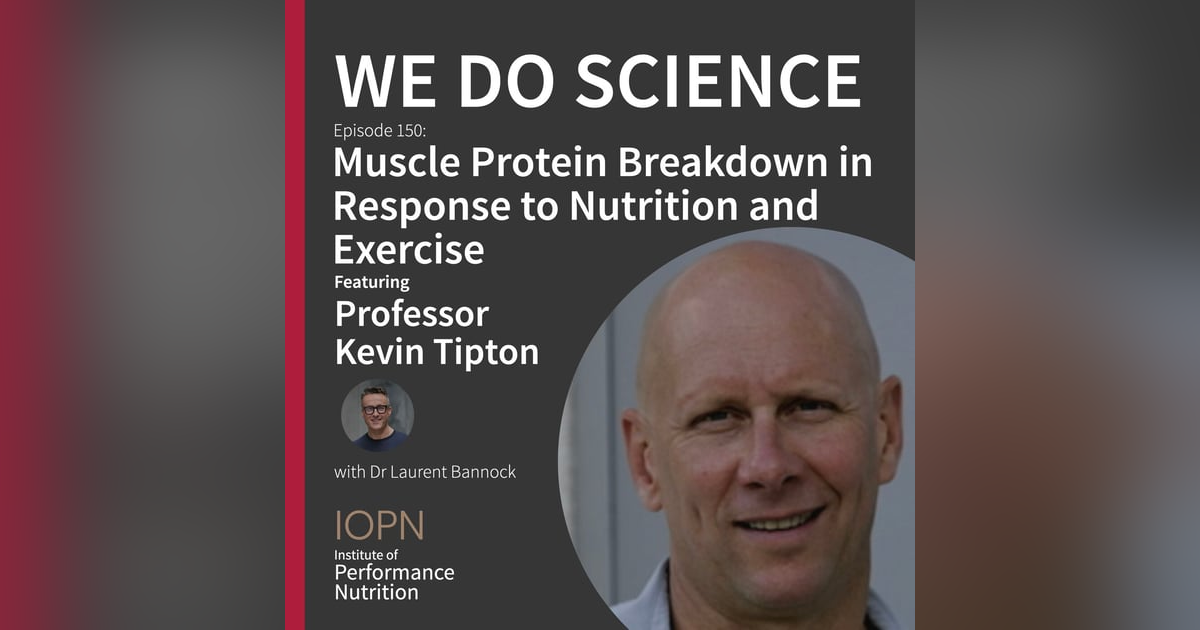Dec. 2, 2020
"Muscle Protein Breakdown in Response to Nutrition and Exercise" with Professor Kevin Tipton

Episode 150 of the Institute of Performance Nutrition's "We Do Science" podcast! In this episode, I (Laurent Bannock) discuss "Muscle Protein Breakdown in Response to Nutrition and Exercise" with Professor Kevin Tipton PhD (UK).
Discussion Topics Include:
- Overview of Muscle Protein Breakdown (MPB) as an important metabolic component of muscle remodelling, adaptation to training, and increasing muscle mass.
- Role of resistance exercise on MPB and Muscle Protein Synthesis (MPS).
- Practical nutrition recommendations for interventions to suppress MPB: a worthwhile strategy or not? What the evidence actually tells us is explored!
- Can nutrition impact any individual muscle protein?
- Why strategies aimed at optimising post exercise nutrition should focus on the response of muscle protein synthesis.
Podcast Episode Transcript: Download PDF Copy
Key Paper(s) Discussed / Referred to:
Related Podcast Episodes:
- #110 - "Nutrition Support for Exercise Induced Injury" with Professor Kevin Tipton
- #98 - "Protein: An Update" with Professor Stu Phillips and Professor Kevin Tipton
- #42 - "Mechanisms of Muscle Hypertrophy" with Brad Schoenfeld PhD
- #38 - "Nutrition and the Molecular Response To Strength Training" with Keith Baar PhD
- #34 - "Nutrient Priming & the Protein Synthetic Response" with D. Lee Hamilton PhD
- #18 - "Protein Nutrition & Critical Appraisal" with Professor Kevin Tipton
- #5 - "Protein" with Prof Stu Phillips and Prof Kevin Tipton
Check out our other podcasts, publications, events, and professional education programs for current and aspiring sports nutritionists at www.TheIOPN.com and follow our social media outputs via @TheIOPN







